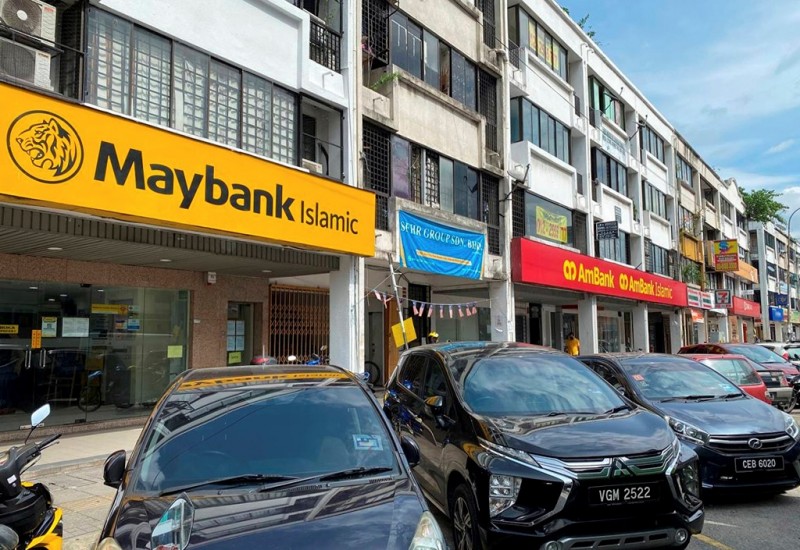
SMALL and medium enterprises (SMEs) are an essential part of any country’s economy, contributing significantly to employment, economic growth and innovation.
Despite being the driving forces, they often face challenges, mainly limited access to finance, lack of resources and limited market access.
SMEs need specialised institutions to support their growth, especially financially.
Currently, banks have been serving well in addressing the difficulty and providing various support to help new and existing micro-SMEs to grow steadily.
However, the gap in financial inclusion still exists.
Taking an important step toward bridging the gap and ensuring all members of the SME community have access to financial support, the Sarawak government has recently announced a plan to set up its own commercial bank.
This was expected to be ready by the end of 2023, slated to support the state’s local SME community financially and contribute to its economic growth.
More Players Good for Country and Entrepreneurs’ Growth
SME Bank group CEO Datuk Aria Putera Ismail welcomed and supported the move and opined that more players in the market would be good for the country and the entrepreneurs’ growth.
“Sarawak having its own bank would give a positive impact to the country because there will be more players,” he told The Malaysian Reserve (TMR) during the financial institution’s Aidilfitri open house on May 10.
Aria Putera added that the new financial institution can complement the SME sector, and SME Bank is open for partnership or collaboration, especially in terms of capacity building and empowerment.
“From our perspective, we have been working closely with the Sarawak government and with their own SME bank, we can explore future opportunities to collaborate with.
“For example, we can do like in Sabah through our Centre for Entrepreneur Development and Research Sdn Bhd, where we undertake joint financing and capacity building to empower the entrepreneur,” Aria Putera added.
Meanwhile, SME Association of Malaysia VP Chin Chee Seong said a Sarawak-owned commercial bank can help support the state’s economic growth by providing easier and cheaper funding for local businesses and SMEs, and creating more jobs.
“This bank could offer a lower lending rate, set better lending criteria and a faster approval process that will certainly benefit and accelerate the growth of the SME industry in Sarawak,” he told TMR.
Among other advantages, he said the bank can make it easier and faster for Sarawak’s SMEs and individuals to access capital, fund various government infrastructure projects and drive economic development.
However, to be successful and convenient in assisting the SME community in all areas and to be long-term viable, the bank can expand its coverage by opening more branches in remote rural areas.
“The bank can develop a tailor-made financial system that could help SMEs enjoy better advantages in various sectors.
“Having more branches throughout the state would give rural SMEs the convenience and easy access to financing, especially in agricultural businesses,” he told TMR.
Commercial Bank Versus Cooperative Bank
UCSI University Malaysia Assistant Professor of Finance and Centre for Market Education research fellow Dr Liew Chee Yoong said a cooperative bank is different in nature as it is usually owned and controlled by its members, who are usually individuals or small businesses.
“The purpose of a cooperative bank is to provide financial services to members, usually at lower transaction costs and interest rates than commercial banks.
“In contrast, commercial banks are typically larger, profit-driven institutions which offer a wider range of financial services for a fee,” he told TMR.
He said one of the main issues surrounding the state having its own commercial bank is the risk related to forming a bank itself, especially in terms of ensuring regulatory compliance and financial stability.
“A cooperative bank may be a better option because it poses a lower banking risk and fosters higher financial stability,” he said.
While Liew believed that a commercial bank could benefit local businesses, the proposed bank needs to cater to the needs of Sarawak’s economy, be effective and commercially viable.
“The cons are the higher costs and risks related to setting up a commercial bank, and managing it properly and effectively,” he added.
Nonetheless, the establishment of the proposed commercial bank is in line with the government’s efforts to boost the development of SMEs, which are the backbone of the Malaysian economy.
“It could also promote competition in the banking sector, which may lead to reduced interest rates and better quality of service to customers,” Liew told TMR.
He said to enhance its success, the new proposed bank could complement existing banks by offering new financial services or loans which existing banks do not offer.
“No doubt that the proposed bank can boost the chances of success and also play a crucial role in promoting the development of the SME sector in the state given that many businesses have difficulty to finance their business despite having a good project plan.
“However, it is important to ensure that the new bank does not create too much competition in the banking sector particularly within the state as this can drive out smaller banks from the market although increased competition leads to lower interest rates and better quality of services,” he added.
To effectively address local needs, Liew suggested that the bank focus on delivering innovative, accessible and lower-cost financial services which can assist SMEs.
“For example, it can offer flexible loan products, provide business advisory and support services, and also help SMEs in terms of risk management,” he said.
Currently, according to Sarawak Premier Tan Sri Abang Johari Tun Openg, negotiations are ongoing with the federal authorities to get a licence to operate the bank, therefore he could not disclose any more details on it.
“I am making the effort to get the licence for Sarawak to have its own commercial bank by the end of this year,” he was reported as saying during a Aidilfitri celebration in Sarawak recently, adding that the majority shares of the bank will be owned by Sarawak.
Source: https://themalaysianreserve.com/2023/05/18/sarawak-commercial-bank-welcomed-but-must-cater-to-state-smes-needs/

